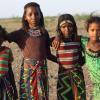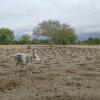Jump to: ASSAR's focus on governance | Key insights | Contact | News stories | Outputs

Marginalised groups in semi-arid regions who live on the frontline of climate impacts will benefit if they are more actively included in climate adaptation governance. However, in these areas, governments struggle to deliver services or engage with local communities due to a range of factors, such as inadequate mainstreaming of climate concerns in development planning, staff capacity deficits at lower levels of governance, and limited technical expertise. We see fragmented decision making across different governance levels. Climate change adaptation responses could learn from widespread implementation of decentralisation, and how it has enabled, and in some cases undermined, the ability to support participation and flexibility across scales. Strengthening governance, and the capacity to engage in decision making across scales, across actors, and between formal and customary governance structures, should be a priority for enabling effective adaptation. Doing so could enable more equitable participation, promote flexible, hybrid forms of governance, and encourage forward-looking, cross-scalar collaboration and knowledge flows.
ASSAR’s focus on governance
ASSAR concentrated on issues of governance in semi-arid regions, with a focus on what forms of governance will enable effective adaptation. The primary question we addressed was: How do existing governance structures help those most vulnerable to adapt to existing climatic and non-climatic dimensions of risk? Our research focused on the impacts of decentralisation in: the water sector in Namibia, Kenya, and Ethiopia; land tenure and customary law in Mali; and climate risk, vulnerability, and adaptation planning in India.
Key insights
In semi-arid regions there is insufficient understanding of what the most appropriate governance approaches are for adapting to climate risk
Adaptation governance is often fragmented; there are disconnects across different levels of governance, and between ecological and administrative scales. Different institutions and actors often have overlapping, competing or antagonistic relationships with regard to adaptation-related responsibilities. Within different institutions there is often a lack of capacity and infrastructure for adaptation across scales, as well as limited planning that is flexible and forward looking, and which accounts for future climatic risks and impacts. As a consequence, marginalised groups often have to manage climate risks without the support they need.
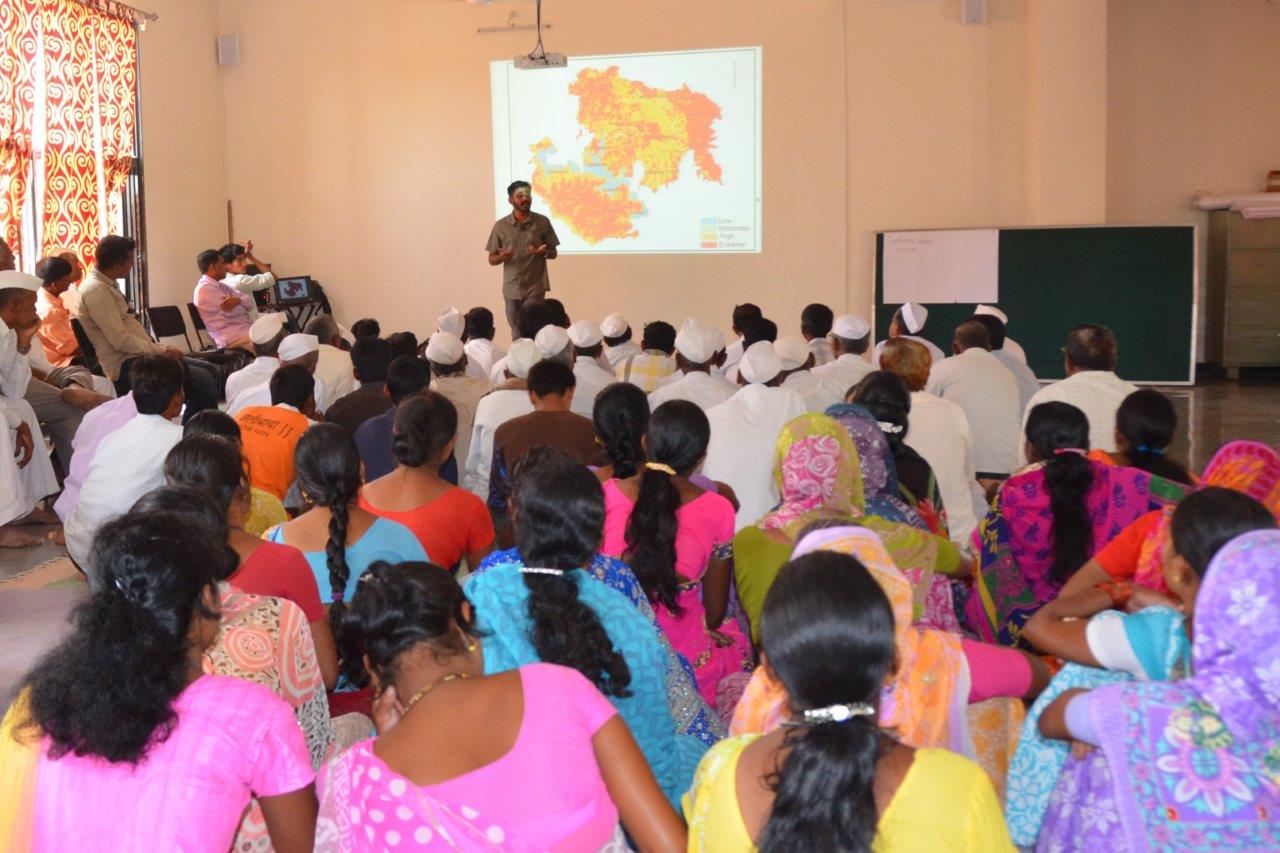
Hybrid governance arrangements are emerging to support adaptation
Disconnections between national, regional and local governments in semi-arid regions mean that intermediary entities often need to negotiate between local actors and government. With some of these intermediaries linking across different scales and across traditional and bureaucratic practices, hybrid governance arrangements are emerging to support adaptation. However, intermediaries often lack capacity in adaptation-related knowledge and decision making, and need requisite support to perform these roles.
Working with customary institutions can help foster collaborative adaptation responses that are cognisant of local context
In semi-arid regions, traditional and customary institutions can play an important role in natural resource management and adaptation responses. In some cases, formalising or supporting these institutions has led to improved management of water, pasture land and forests. It has also led to the emergence of hybrid structures where traditional institutions collaborate with formal government agencies on land stewardship and resource management. However, conflicts between customary and formalised government arrangements remain, especially when the definition of mandates, authority, and roles and responsibilities is unclear. Ways of integrating traditional and customary institutions with government institutions need more attention. Integration holds opportunities for adaptation that recognises local needs and structures while acknowledging the role of government.
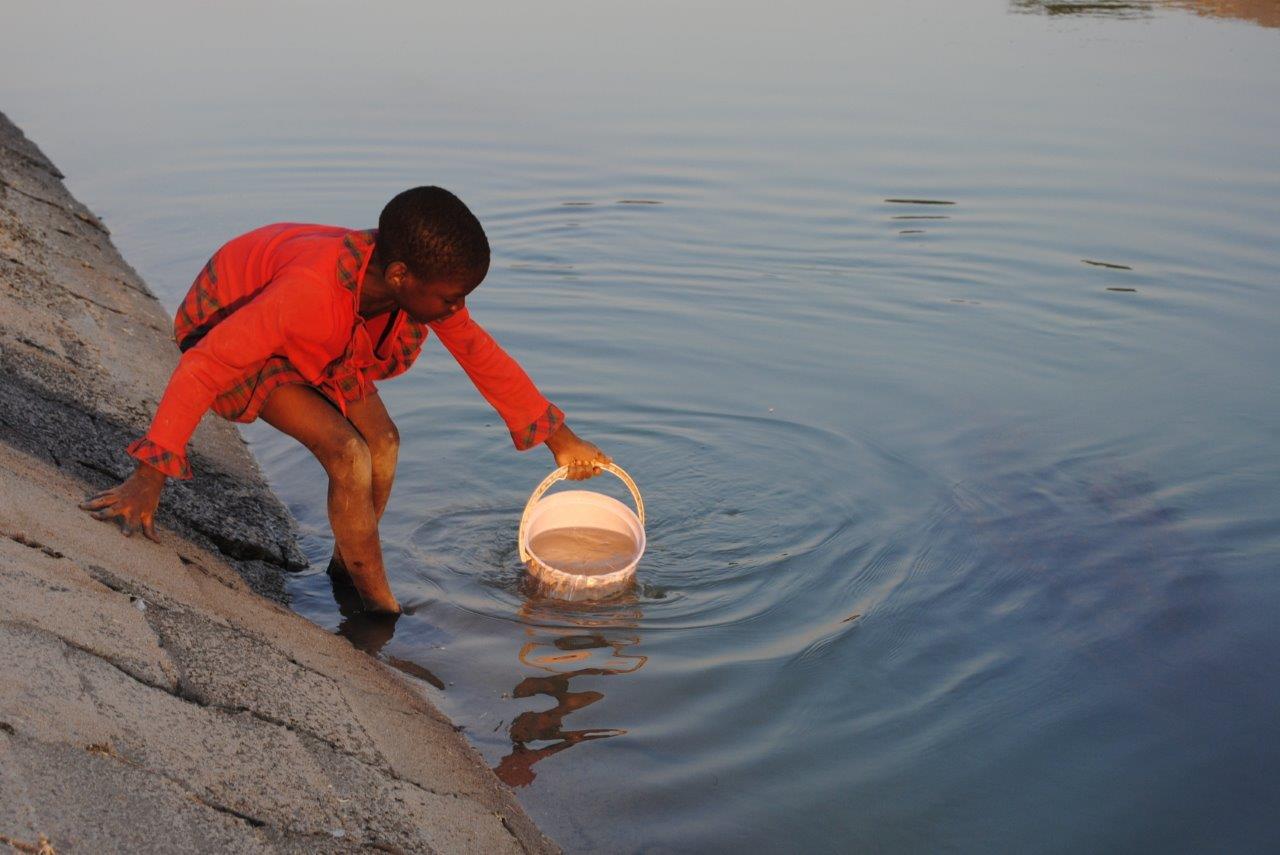
Building capacity of local actors to engage in local and cross-scalar adaptation governance is critical, but must start from appreciating existing capacity and aspiration
People living in semi-arid regions hold a lot of local knowledge about adaptation challenges, and in many cases are responding to change. Future shifts in temperature and rainfall patterns as a result of climate change will put extra pressure on these communities, increasing their need for support. Although work is happening around climate change policy and the establishment of national priorities, this work is not yet feeding into or sufficiently supporting on-the-ground needs. At the local level, there is a lack of financial and technical support for communities to innovate for adaptation. Local capacity needs to be strengthened to adapt to long-term change and support engagement in multi-level governance processes and flexible planning. This capacity strengthening needs to build on existing skills and local knowledge while recognising that new skills are needed. Maximum benefit will be derived if the capacity support links to wellbeing, and aspirations, and is context specific.
Adaptation needs to prioritise vulnerable groups and contested views, which requires more attention to how diverse needs and voices get heard
In the adaptation space, certain views dominate decision-making processes and the identification of adaptation priorities. For most potential adaptation responses, trade-offs exist. Frequently, these are insufficiently explored from the perspective of diverse groups, and dominant groups tend to have the final say. More attention needs to be paid to how to shift away from dominant views, to support processes and implementation that can include the priorities of the most vulnerable, who are often least able to support their own adaptation sufficiently. This is likely to require additional support from NGOs and intermediaries that can liaise between vulnerable groups, government actors and, at times, the private sector.
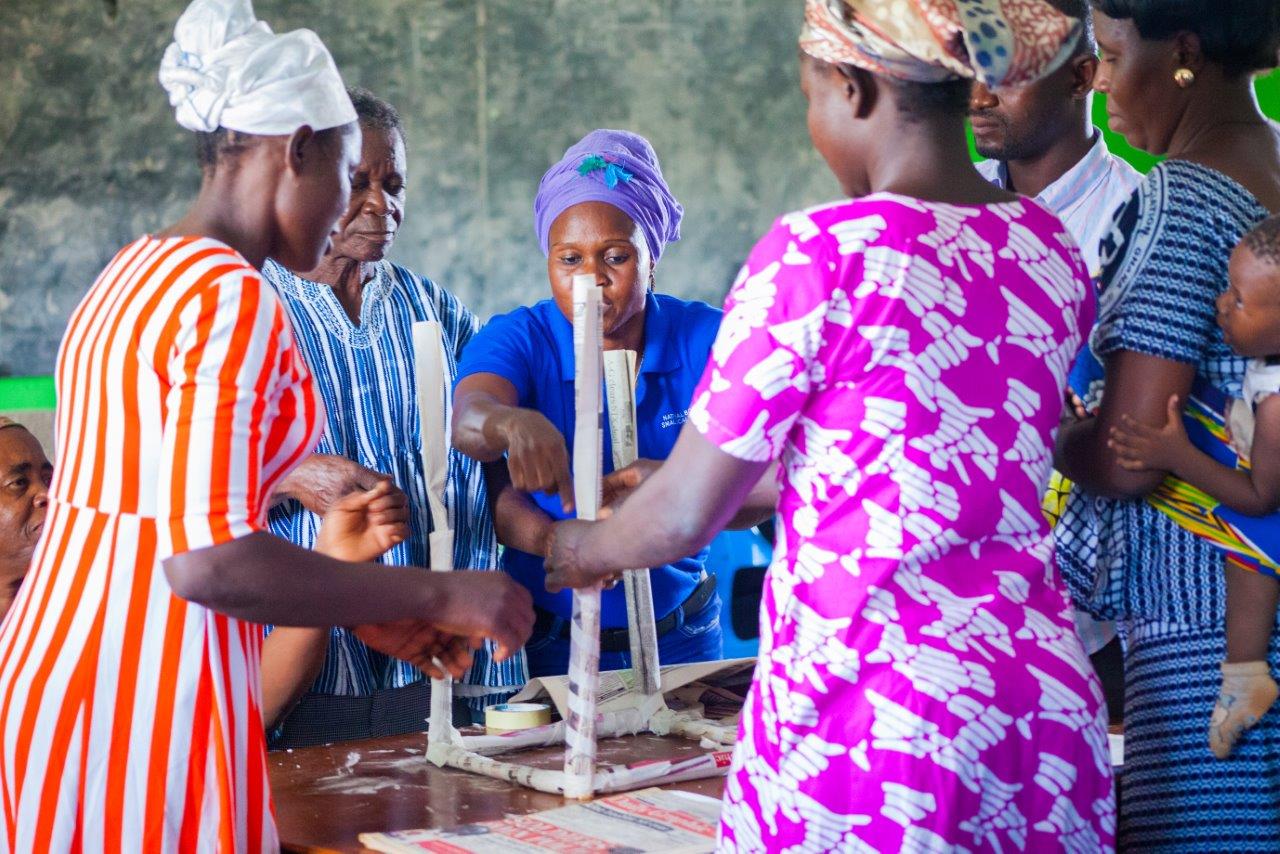
Click here for more detail, and ASSAR's specific recommendations for policy, practice, and research
Contact
|
Gina Ziervogel* (gina.ziervogel@uct.ac.za), University of Cape Town |
Related news stories
Related outputs
|
Type |
Author(s) |
Year |
Title |
Details |
Links |
|---|---|---|---|---|---|
| Book chapter | Morchain, D. | 2018 | Multi-level climate change planning: Scale, capacity and the ability for local action. | In: S. Moloney, H. Fuenfgeld and M. Granberg (eds.) Local Action on Climate Change. London, UK: Routledge, pp. 92-110. | |
| Book chapter | Sami, N. | 2018 | Localising environmental governance in India: Mapping urban institutional structures. | In A. Luque-Ayala, H. A. Bulkeley and S. Marvin (eds.) Rethinking Urban Transitions: Politics in the Low Carbon City. London, UK: Routledge (chapter). | |
| Brochure/flyer | D’Souza, M. and Misquitta, K. | 2018 | From me to we...from mine to ours! A story of how motivation changes people’s perceptions and drives community action. [Story of Change] | ||
| Infographic | ASSAR | 2018 | Do women farmers have a fair share of land for food security and sustainable adaptation? | ||
| Infographic | ASSAR | 2018 | Multiscale governance: The paradox of top-down policy design. | French infographic | |
| Infographic | ASSAR | 2018 | Sometimes our interventions can lead to unintended consequences: A well does not always lead to wellbeing. | ||
| Information brief | ASSAR | 2016 | Barriers and enablers of climate change adaptation in semi-arid Ghana. | ||
| Information brief | ASSAR | 2018 | Do conservancies enhance the adaptive capacity of communities? Perspectives from ASSAR’s work in Kenya. | ||
| Information brief | ASSAR | 2019 | Does villagisation enhance the adaptive capacity of pastoralist communities? Perspectives from ASSAR's work in Ethiopia. | ||
| Information brief | Bosworth, B., Hegga, S. and Ziervogel, G. | 2018 | When participation is not enough: Lessons from decentralised water governance in Namibia. | ||
| Information brief | CARIAA | 2018 | Climate adaptation policy. | ||
| Information brief | Davies, J. | 2017 | Barriers and enablers to climate change adaptation in north-central Namibia. | ||
| Information brief | Few, R. | 2017 | Drought does not work alone. | ||
| Journal article | Abass, R., Mensah, A. and Fosu-Mensah, B. | 2018 | The role of formal and informal institutions in smallholder agricultural adaptation: The case of Lawra and Nandom Districts, Ghana. | West African Journal on Applied Ecology, 26: 56-72. | |
| Journal article | Few, R., Morchain, D., Spear, D., Mensah, A. and Bendapudi, R. | 2017 | Transformation, adaptation and development: Relating concepts to practice. | Palgrave Communications, 3: 17092. | Summary |
| Journal article | Gajjar, S. P., Singh, C. and Deshpande, T. | 2018 | Tracing back to move ahead: A review of development pathways that constrain adaptation features. | Climate and Development. | Summary |
| Journal article | Michael, K., Deshpande, T. and Ziervogel, G. | 2018 | Examining vulnerability in a dynamic urban setting: The case of Bangalore’s interstate migrant waste pickers. | Climate and Development. | Summary; Information brief |
| Journal article | Morchain, D., Ziervogel, G., Spear, D., Masundire, H., Angula, M., Davies, J., Hegga, S. and Molefe C. | 2019 | Building transformative capacity in southern Africa: Surfacing knowledge through participatory Vulnerability and Risk Assessments. | Action Research, 17(1): 19-41. | Summary |
| Journal article | Ofoegbu, C., New, M. G. and Kibet, S. | 2018 | The effect of inter-organisational collaboration networks on climate knowledge flows and communication to pastoralists in Kenya. | Sustainability, 10(11): 4180. | |
| Journal article | Ofoegbu, C., New, M., Nyamwanza, A. M. and Spear, D. | 2018 | Understanding the current state of collaboration in the production and dissemination of adaptation knowledge in Namibia. | Environment, Development and Sustainability. | |
| Journal article | Sidibé, A., Totin, E., Thompson-Hall, M., Traoré, O. T., Traoré, P. C. S. and Olabisi, L. S. | 2018 | Multi-scale governance in agriculture systems: Interplay between national and local institutions around the production dimension of food security in Mali. | NJAS - Wageningen Journal of Life Sciences, 84: 94-102. | Summary; English information brief; French information brief |
| Journal article | Singh, C., Rahman, A., Srinivas, A. and Bazaz, A. | 2018 | Risks and responses in rural India: Implications for local climate change adaptation action. | Climate Risk Management, 21: 52-68. | Summary; Information brief |
| Journal article | Totin, E., Segnon, A. C., Schut, M., Affognon, H., Zougmoré, R. B., Rosenstock, T., and Thornton, P. K. | 2018 | Institutional perspectives of climate-smart agriculture: A systematic literature review. | Sustainability, 10(6): 1990. | Summary |
| Journal article | Davies, J., Spear, D., Ziervogel, G., Hegga, S., Angula, M., Kunamwene, I. and Togarepi, C. | 2019 | Avenues of understanding: Mapping the intersecting barriers to adaptation in Namibia. | Poster, Information brief | |
| Publication in progress | Degefu, M. A., Assen, M. and Satyal, P. | _ | Villagisation and water resource in the Middle Awash Valley of Ethiopia: Implications for climate change adaptation. | Poster | |
| Publication in progress | Few, R., Satyal, P. and Tebboth, M. G. L. | _ | Using a justice/ capabilities framing to understand people's vulnerability and adaptive capacity in the drylands of East Africa. | ||
| Publication in progress | Hegde, G., Sasidharan, S. and Bazaz, A. | _ | Traditional knowledge systems and the role of knowledge brokers, in India. | Poster | |
| Publication in progress | Hegga, S. and Kunamwene, I. | _ | Mapping actor influence in climate adaptation practices: The case of north-central Namibia. | Poster | |
| Publication in progress | Hegga, S., Kunamwene, I. and Ziervogel, G. | _ | Local participation in decentralised water governance: Insights from north-central Namibia. | Presentation | |
| Publication in progress | Kaur, H., Bazaz, A. and Srinivas, A. | _ | Understanding access to knowledge systems and rural perspectives from Karnataka. | ||
| Publication in progress | Kibet, S., Wasonga, O., Satyal, P., Rao, N. and Zewdie, A. | _ | Perceptions on governance and knowledge flow on effective adaptation to climate changes within community-based conservancies in Kenya. | ||
| Publication in progress | Michael, K., Deshpande, T. and Bhaskara, K. | _ | The political economy of climate change and vulnerability in a neo-liberal city: A case of Bengaluru's informal settlements. | Summary | |
| Publication in progress | Ofoegbu, C. and New, M. | _ | The effect of inter-organisational collaboration networks on climate knowledge flows and communication to rural farmers in Ghana. | ||
| Publication in progress | Pillai, S. and Bendapudi, R. | _ | Inclusion of local aspirations in village development plans in Maharashtra. | ||
| Publication in progress | Satyal, P., Budds, J., Few, R., Bahir, A., Kibet, S. | _ | Adaptation to climate change in the context of decentralisation: Exploring multi-level governance of water-related issues in semi-arid areas of East Africa. | Presentation | |
| Journal article | Singh, C., Solomon, D., Bendapudi, R., Kuchimanchi, B., Iyer, S. and Bazaz, A. | 2019 | What shapes vulnerability and risk management in semi-arid India? Moving towards an agenda of sustainable adaptation. | Summary | |
| Publication in progress | Totin, E., Sidibe, A. and Thompson-Hall, M. | _ | Governance of resources: Is there space for implementing the land policy under complex customary tenure practices? | Presentation | |
| Publication in progress | Wasonga, O., Kibet, S., Tebboth, M. G. L., Few, R. | _ | Do wildlife conservancies enhance the adaptive capacity of local communities? Perspectives from northern Kenya. | ||
| Publication in progress | Ziervogel, G., Satyal, P., Basu, R., Mensah, A. and Singh, C. | _ | Vertical integration for climate change adaptation in the water sector: Lessons from decentralisation in Africa and India. | ||
| Report | ASSAR | 2019 | Forward-looking inclusive governance arrangements across different scales are a critical enabler for adaptation | ||
| Report | Hegga, S. | 2016 | Mapping out stakeholder influence on the implementation of climate change adaptation in Namibia – Short report. | ||
| Report | Hegga, S. | 2016 | Vulnerability and risk assessment in the Onesi Constituency, Omusati Region, Namibia: Towards improving livelihood adaptation to climate change – Short report. | Summary | |
| Report | Hegga, S., Siyambango, N., Angula, M., Spear, D., Masundire, H., Molefe, C. and Morchain, D. | 2015 | Stakeholder and influence network mapping exercise with the government, development and research actors in Namibia. | ||
| Report | Masundire, H., Morchain, D., Raditloaneng, N., Hegga, S., Ziervogel, G., Molefe, C., Angula, M. and Omari, K. | 2016 | Vulnerability and risk assessment in Botswana’s Bobirwa sub-district: Fostering people-centred adaptation to climate change. | ||
| Report | Singh, C., Basu, R. and Srinivas, A. | 2016 | Livelihood vulnerability and adaptation in Kolar District, Karnataka, India: Mapping risks and responses. | ||
| Report | Tebboth, M. G. L. and Few, R. | 2018 | Considering the future of Prosopis: Participatory Scenario Analysis in Afar, Ethiopia. | ||
| Report | Tebboth, M. G. L. and Few, R. | 2018 | Considering the future of the rangelands: Participatory Scenario Analysis in Isiolo, Kenya. | ||
| Thesis | Abass, R. | 2018 | Formal and informal institutions in climate change adaptation: the case of Lawra and Nandom districts in the upper west region. | Master's thesis. University of Ghana. | Poster |
| Thesis | Akugre, F.A. | 2017 | Implications of land tenure rights on farmers’ adaptive capacity to climate variability and change in semi-arid North-Western Ghana: The case of crop farmers in the Lawra district. | Master's thesis. University of Ghana. | |
| Thesis | Ballo, M. | _ | Effet des changements climatiques et des pratiques agricoles sur la gestion durable des bas-fonds dans le Mali Sud: Cas de Sorobasso et Koumbri dans le Cercle de Koutiala, Bamadougou Bagotière dans le Cercle de Sikasso. | PhD thesis. Institut Universitaire de Développement Territorial de Bamako (IUDT). | |
| Thesis | Berthe, D. | 2017 | Analyse de la dynamique des modes d'accès au foncier agricole dans les communes rurales de koloningue et de m’pessoba, Cercle de Koutiala au Mali. | Master's thesis. Institut supérieur de formation à la recherche appliquée (ISFRA). | |
| Thesis | Cisse, O. | 2017 | Analyse de l’évolution des pratiques de pêche dans la commune rurale de Zangasso, cercle de Koutiala au Mali. | Master's thesis. Institut supérieur de formation à la recherche appliquée (ISFRA). | |
| Thesis | Davies, J. | 2016 | Exploring the factors and actors that contribute to the co-production of climate adaptation plans: A comparison of three municipalities in the Western Cape Province, South Africa. | Master's thesis. University of Cape Town. | |
| Thesis | Kunamwene, I. | _ | Wellbeing as a way of looking at vulnerability and response to drought in Onesi, Namibia. | PhD thesis. University of Cape Town. | |
| Thesis | Omari, K. | _ | Drought management in Botswana. | PhD thesis. University of Cape Town. | |
| Thesis | Sanogo, T. | 2017 | Changements climatiques et gouvernance des ressources pastorales dans la commune rurale de Sincina Cercle de Koutiala, Mali. | Master's thesis. Institut supérieur de formation à la recherche appliquée (ISFRA). | |
| Thesis | Shooya, O. | 2017 | Barriers and enablers to water access and community wellbeing in the Onesi constituency of Namibia: The case of Okalonga B and Onandjandja villages. | Master's thesis. University of Cape Town. | |
| Thesis | Sulemana, A. | 2017 | Management and use of non-timber forest products (NTFPs) as climate change adaptation strategy in Lawra district, Ghana. | Master's thesis. University of Ghana. | |
| Thesis | Traore, O. T. | 2016 | Gouvernance et vulnérabilité des groupes sociaux: Analyse de la situation institutionnelle autour du coton dans le Cercle de Koutiala. | Master's thesis. Institut Universitaire de Développement Territorial de Bamako (IUDT). | |
| Thesis | Zulfawo, T. A. | 2016 | Exploring the competing uses of water in the context of climate variability and change in the Lawra district. | Master's thesis. University of Ghana. | |
| Web article | Ziervogel, G. and Hegga, S. | 2018 | Why ordinary people must have a say in water governance. | The Conversation. 17 June 2018. | |
| Working paper | Basu, R. and Bazaz, A. | 2016 | Assessing climate change risks and contextual vulnerability in urban areas of semi-arid India: The case of Bangalore. | ||
| Working paper | Bendapudi, R., Yadav, A., Chemburkar, S., D’Souza, M. and Thomas, R. | 2019 | Adaptation or maladaptation: Case of farm ponds converted into storage tanks in Maharashtra: Implications for groundwater governance. | Poster | |
| Working paper | Davies, J., Spear, D., Omari, K., Morchain, D., Urquhart, P. and Zaremba, J. | 2017 | Background paper on Botswana’s draft Drought Management Strategy. | ||
| Working paper | Few, R., Bendapudi, R., Mensah, A. and Spear, D. | 2016 | Transformation in adaptation: Learning from ASSAR’s regional diagnostic studies. | ||
| Working paper | Few, R., Satyal P., Assen M., Camfield L., Leavy J. and McGahey D. | 2018 | The development-adaptation spectrum in dryland East Africa: mapping risks, responses and critical questions for social research. | ||
| Working paper | Misquitta, K. and Thatte, K. | 2018 | Whose appropriate technology? Understanding the adoption of micro-irrigation in the face of climate and policy uncertainty. | ||
| Working paper | Revi, A., Bazaz, A., Krishnaswamy, J., Bendapudi, R., D’Souza, M. and Pahwa Gajjar, S. | 2015 | Vulnerability and adaptation to climate change in semi-arid areas in India. | ||
| Working paper | Singh, C., Gajjar, S. P. and Deshpande, T. | 2016 | Policies, projects and people: Exploring the adaptation-development spectrum in India. | ||
| Working paper | Spear, D., Haimbili, E., Angula, M., Baudoin, M., Hegga, S., Zaroug, M. and Okeyo, A. | 2015 | Vulnerability and adaptation to climate change in the semi-arid regions of southern Africa. |
